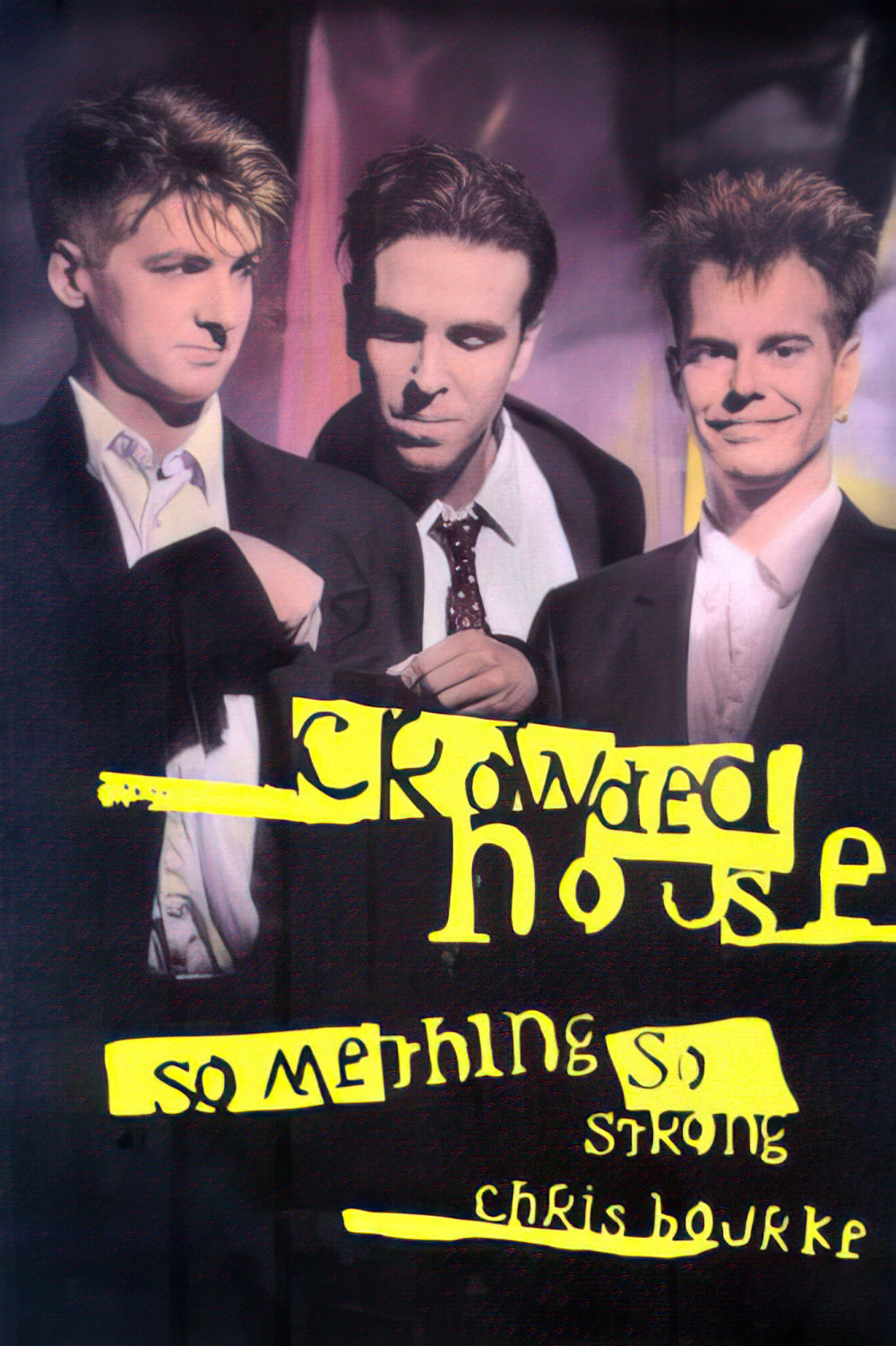 Story: One of the biggest – and yet most low-key – rock music success stories to emerge from the south Pacific, Crowded House formed from the ashes of New Zealand mondo bizarro supergroup Split Enz, reflecting songwriter Neil Finn’s desire to explore song arrangements more easily duplicated on stage. By the luck of the draw, Crowded House’s first album was boosted by “Don’t Dream It’s Over”, a single which climbed to #2 on the U.S. Billboard charts. But that immense success proved nearly impossible to duplicate later, with no further hits in America and a widespread cult following overseas. The book ends with the last known whereabouts of the musicians, managers, record company execs, friends and family members following the group’s 1996 farewell concert in Sydney, which went down in the history books as the biggest concert audience anywhere in the world that year. Not bad for a group that nobody recognizes by name anymore…
Story: One of the biggest – and yet most low-key – rock music success stories to emerge from the south Pacific, Crowded House formed from the ashes of New Zealand mondo bizarro supergroup Split Enz, reflecting songwriter Neil Finn’s desire to explore song arrangements more easily duplicated on stage. By the luck of the draw, Crowded House’s first album was boosted by “Don’t Dream It’s Over”, a single which climbed to #2 on the U.S. Billboard charts. But that immense success proved nearly impossible to duplicate later, with no further hits in America and a widespread cult following overseas. The book ends with the last known whereabouts of the musicians, managers, record company execs, friends and family members following the group’s 1996 farewell concert in Sydney, which went down in the history books as the biggest concert audience anywhere in the world that year. Not bad for a group that nobody recognizes by name anymore…
Review: I’ve always been fascinated by both Crowded House and Split Enz, so this book was a godsend for me, finally revealing something about the members of the group and the army of supporters and friends who helped them almost reach the top of the charts (however briefly). All of the group’s members are interviewed, as are all of the key players except for Craig Hooper (a “fifth Beatle” type who was ejected from the band just before their successful first album) and the enigmatic Youth (who produced the fourth and final non-compilation Crowded House album). Considering how many people play a part in generating this kind of success story, that’s not a bad bit of journalism.
For those not well acquainted with the Split Enz story, there’s also at least one chapter which delivers a healthy bit of background in that area as well – essential reading since that history is frequently referred to later on.
If there’s any one thing about “Something So Strong” which bothers me, it’s not the fault of the author, but of the subjects. Chris Bourke did an absolutely stellar job of talking to nearly everyone involved, and getting a fairly concise idea of why certain marketing strategies, choices for singles, and other things failed to make Crowded House a worldwide success for any significant length of time. The band, on the other hand, is what bugged me – some of the most petty rivalries imaginable (which, frequently, even the participants admit to being childish), along with an unhealthy dose of drug use. Granted, we’re talking pot here, and not the kind of heavy stuff which has done in stars of far greater magnitude, but one wonders what kind of music waits to be written by a genius of Neil Finn’s caliber if he could go straight.
An excellent read – but be prepared to be annoyed by the band members themselves by the time you turn the last page. That a combo capable of producing such intricately beautiful sounds became so volatile over such miniscule issues is frustrating, whether you know their work or not.
Year: 1997
Author: Chris Bourke
Publisher: Pan Macmillan Australia
Pages: 376

